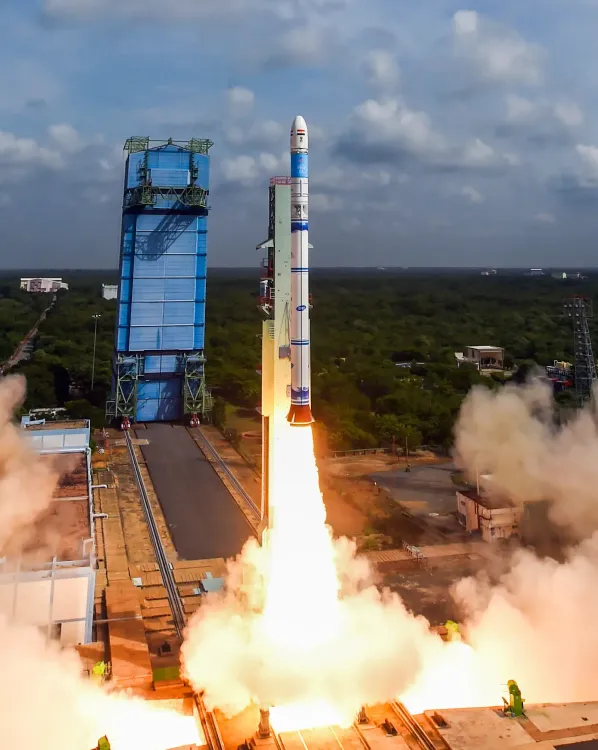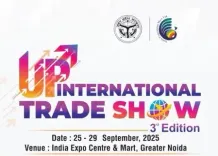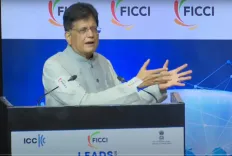Has ISRO Partnered with HAL for SSLV Technology Transfer?

Synopsis
Key Takeaways
- ISRO marks its 100th Technology Transfer Agreement.
- HAL is set to independently manufacture SSLVs.
- Training and technical support will be provided by ISRO.
- This agreement aims to meet global satellite launch demands.
- The partnership strengthens India's space technology ecosystem.
New Delhi, Sep 10 (NationPress) The Indian space industry celebrated a significant milestone on Wednesday as it marked its 100th Technology Transfer Agreement, allowing Hindustan Aeronautics Limited (HAL) to autonomously manufacture Small Satellite Launch Vehicles (SSLVs).
This pivotal agreement was orchestrated by the Indian National Space Promotion and Authorisation Centre (IN-SPACe) and was executed between the Indian Space Research Organisation (ISRO), NewSpace India Limited (NSIL), IN-SPACe, and HAL.
Over a span of 24 months, ISRO will impart its SSLV expertise to HAL, which will encompass training and technical assistance. An official statement noted, "During this timeframe, ISRO will deliver essential training and technical support to HAL to enable the acquisition of SSLV know-how, spanning from commercial aspects to technology integration, ultimately leading to the successful execution of two missions under this agreement."
This collaboration aims to meet the rising global demand for small-satellite launches.
Moreover, it is intended to enhance India's prowess in space technology and commercial operations, serving as a foundational step towards the democratization of the SSLV sector, as highlighted in the statement.
Dr. V. Narayanan, Secretary of the Department of Space and Chairman of ISRO, remarked, “As India liberalizes its commercial space sector, opportunities are indeed expanding, and ISRO has an agile technology transfer mechanism to achieve our collective objectives.”
"ISRO will assist the HAL team in preparing SSLV for flight, which will shape the next phase of advanced collaboration in Indian space technology," he further added.
IN-SPACe Chairman Pawan Goenka characterized the collaboration as a vital leap forward, reinforcing the industrial framework within India’s space domain.
With this agreement, HAL will be empowered to independently develop SSLVs and serve both domestic and international markets, he noted.
Dr. D.K. Sunil, CMD of HAL, expressed that the company will leverage its engineering and manufacturing capabilities to construct SSLVs while preparing the necessary workforce to establish a self-sustaining, cost-effective business ecosystem for both domestic and global clientele.









